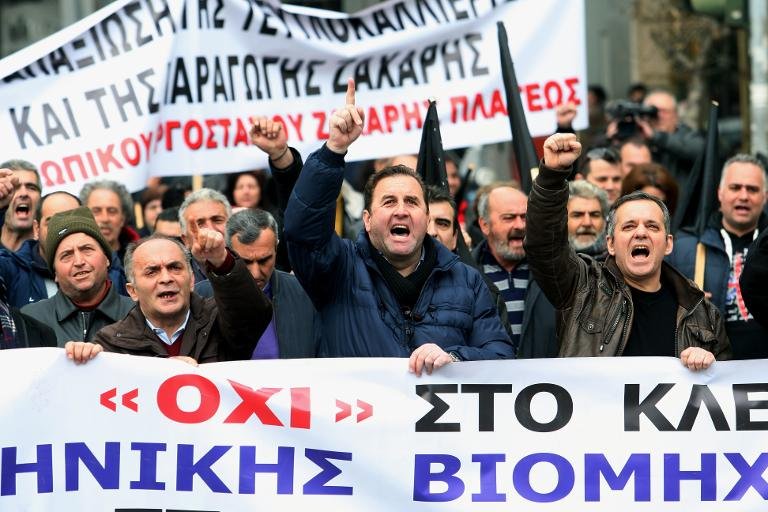While Brazil has shown that it can make significant economic strides in the Middle East, it has far to go on a political and diplomatic level. In order to expand its global reach and influence, Brasilia must create and implement a detailed and organized foreign policy strategy for the region, and Brazil should work to become an active participant in shaping Middle Eastern policy, rather than maintaining its traditional observer role.
After the Bush administration’s unilateral approach to the Iraq War, discussions arose worldwide about the need to diversify existing multilateral institutions, including the United Nations Security Council. It was suggested that Brazil would be a perfect addition to the Security Council and that the country should be granted a permanent seat.
Many countries have become convinced that the traditional power structure of the Security Council must be diversified and adjusted to take into account emerging global powers, such as the BRICS nations, in order to become more democratic, effective, and representative of global power. As a pacifist country and a committed actor on the global stage, Brazil has been dedicated to upholding international law, and has respected the sovereignty of other countries. Brazil has proven itself a strong supporter of the R2P doctrine, maintaining that intervening forces have a responsibility to protect civilians during operations.
Brazil’s Strategy for Achieving a Permanent Seat on the UN Security Council
Brazil must be able to gather support from all the five permanent members of the Security Council, as it, to date, has only received public support from France, the United Kingdom, and Russia.
During President Obama’s visit to Brazil in 2011, he stressed that no other countries in the region matched the hegemonic influence of Brazil, an influence which is partly the result of a long political and economic partnership between Brazil and the United States. In A New Strategic Connection, Hussein Kalout, of the Harvard International Review, suggests “it may only be a matter of time before Washington officially acknowledges the strength of Brazil’s candidacy”.

The last remaining UNSC member country, China, holds a unique position, as it is reluctant to reform any aspects of the Security Council for fear of the inclusion of India and Japan.
Brazil must build consensus for its hegemonic ascent in the Southern Hemisphere, paying special attention to Latin America. Mexico and Argentina are Brazil’s main competitors, but neither has been able to get support from other Latin American or African countries. Both Mexico and Argentina have significant challengers on the Security Council – Argentina would likely face a veto from the U.K. due to their ongoing disagreement over the ownership of the Falkland Islands, and Mexico would likely face challenges from its neighbour to the North for fear of the loss of American hegemonic power in the region.
Since the creation of the UN in 1945, Brazil has involved itself in issues of international security and peacekeeping through its participation in what have been some of the largest peacekeeping operations in the past 50 years. This participation has become a pillar of Brazilian diplomacy, following Brazil’s involvement in the First United Nations Emergency Force deployed during the Suez Crisis, to which it contributed 600 soldiers.
Currently, Brazil is involved in 10 of the UN’s 18 active peacekeeping operations worldwide. Two of its most important missions are MINUSTAH in Haiti and UNIFIL in Lebanon. In Haiti, Brazil has contributed to the success of the mission by holding military command since deployment in June 2004, and deploying 1200 of its own soldiers to the MINUSTAH force. In Lebanon, Brazil’s Maritime Task Force works with Lebanese Naval Forces to prevent the smuggling of illegal shipments, and to monitor the Israeli and Lebanese coastlines.
Through the Brazilian Agency for Cooperation, Brazil has worked on numerous projects to modernize Africa, going so far as to write off the debt of several African Countries. On the 50th Anniversary of the African Union, Brazilian president Dilma Rousseff announced a debt relief plan targeted at a few African countries. The plan called for the “cancellation or restructuring” of up to USD 900 million owed by twelve African countries. In so doing, Brazil hopes to improve its politico-economic relations with the region, which is rich in natural resources, including oil, and create a potential consumer base for Brazilian exports, both factors which are sure to contribute to Brazil’s aspirations to Superpower status.
Brazil has historically remained neutral in the Israeli-Palestinian conflict, recognizing the importance of both Israel’s security and the rights of the Palestinians. During his presidency, Lula increased Brazil’s participation in the Israeli-Palestinian peace process by hosting a series of ministerial visits by Israeli and Palestinian leaders, including Palestinian President Mahmoud Abbas and Israeli President Shimon Peres in November 2009. In 2010, Lula became the first president to visit both Israeli and Palestinian territory. However, under Lula’s power, Brazilian foreign policy shifted slightly in favour of the Palestinians.
It is clear that the unipolar security climate of the post-Cold War era is shifting in favour of a more multipolar world order. As the largest South American economy and the fourth-largest democracy in the world, it is logical that Brazil must be granted permanent status as a UNSC member state.




